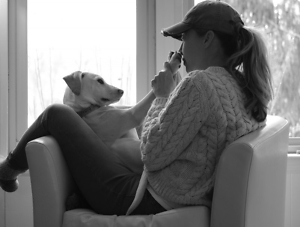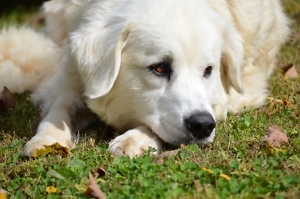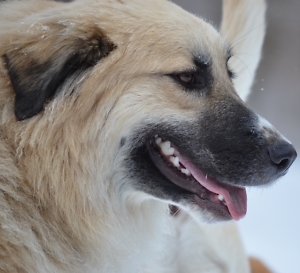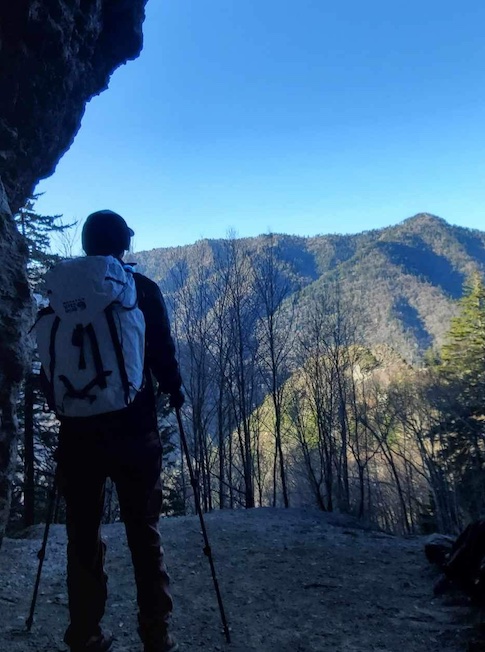Princess in a Trash Pile
Sometimes even the best rules must be broken
On the weekend we met Meadow, our friends Jason and Nora were visiting from Charlotte. We were supposed to be listening to live music at honky-tonks on 2nd Avenue in Nashville. Instead, we were driving through rural Tennessee to pick up our next foster dog.
Even with our change of plans, the mood in Jason’s Jeep was lighthearted. We laughed about drinking too much wine the night before and eating pizza bites at midnight. None of us knew what we were about to see.

My husband Mason and I had independently rescued dogs for 10 years before we decided to make our work official. We started volunteering for a local nonprofit during the fall of 2013. On the day we signed up, I told the nonprofit’s head honcho, Joan*, we could only foster one dog at a time. I wouldn’t budge on that. A fine line exists between helping animals and hoarding them. At that point, if Mason and I had kept every abused and abandoned dog we found on the roadside, we’d have 32 dogs living at the Farnival, our Robertson County farm. An ironic but inescapable fact about humanitarian work: It requires emotional limits.
The sky was gray, the wind keen for early October. A cold front had descended late the night before. The mood in the Jeep quieted when we turned down a dirt road running through a trailer park. The only difference between mobile homes was the degree of wear. A fence surrounded some, but most didn’t have one. Every trailer had at least two, sometimes three dogs lounging by their porch steps. I guessed that none were spayed or neutered.
We pulled into the driveway of a singlewide trailer with a mowed yard and two impossibly bright purple mums potted next to the front door. Joan, 70-something with short white hair and a musical Southern accent, was talking to a neighbor who had been feeding two abandoned dogs across the street for a week. The landlord had evicted the family who owned them — an 18-year-old mother, her boyfriend, and their three toddlers. The family loaded up what they could fit in their truck and left everything else behind, including their dogs. The neighbor said they weren’t cruel, just poor.
In the years that followed, I’d hear the same story over and over. The details were different, but poverty was always the theme. In most cases, people wanted to take care of their animals, but they couldn’t afford it. Even getting animals fixed at a low-cost clinic would break monthly budgets. So, in these rural communities, places where leash and fence laws aren’t enforced, dogs just keep breeding, creating more and more unwanted mutts nobody can afford.
We had all agreed that Mason and I would foster just one of the abandoned dogs. Joan would buy the neighbor food so she could feed the remaining one until space opened up with another foster family. We walked down a gravel driveway leading to a beat-up mobile home that overlooked piles and piles of junk.

The trailer sat tilted on cinderblocks and looked like someone had tipped it over and emptied it. Ductwork, insulation, empty Marlboro cartons, Big K plastic bottles, children’s toys, high-heeled shoes, kitchen utensils, and a mattress were just a few of the things littering the property. A chain-link fence surrounded all of it.
A red and black rooster suddenly appeared at the fence’s corner. For several seconds, I couldn’t take my eyes off the bird. I had the bizarre thought he shouldn’t be there because he might dig at the insulation. The dogs noticed the chicken, too. They moved, and that’s when we saw them.
I gasped. I heard Nora gasp behind me. We weren’t shocked because the dogs were abused or emaciated. We gasped because they were so beautiful that they looked completely out of place, like a queen and a princess from a different era, or maybe a different planet, who accidentally ended up in a trash pile in a rural trailer park.
The neighbor said the Great Pyrenees was the smaller one’s mother. The Pyrenees wore long hair that looked impossibly white in that mud pit. She had a square jaw, regal stance, swooping tail. She stood 3 feet high, weighed maybe 80 pounds. The younger dog had her mother’s long hair, but it was shaded blond and tan. She weighed 10 pounds less, stood a foot shorter, and had a German shepherd’s signature snout.
The neighbor had pushed plywood and bricks against a busted gate so the dogs couldn’t escape, and Mason and Jason wormed their way through it. The animals definitely weren’t aggressive, but they were timid and tried to run away. Finally, the guys cornered the younger one. Mason lifted her into his arms and carried her to a crate in Joan’s van. She didn’t fight, but she trembled the whole way. Mason just held her tighter.

Nora, Joan, and I stayed rooted, staring at the mother, who had no interest in the three strangers outside the gate. Instead, she fixated on my husband’s receding form. Suddenly, she threw back her snout and howled. She only cried once, but loss filled every second of it. In some ways, hearing her cry was harder than seeing an abused dog. It was such clear proof of her feelings. And at that moment her heart was breaking.
I thought about our one-foster-dog-at-a-time rule. I really did. But I’d be lying if I said logic mattered after I heard that dog’s howl.
“She can sleep in the basement, right? I mean we have an entire basement,” I said. Was I was trying to convince Joan or myself?
Joan smiled but caught my eye. “So much for one dog at a time.”
Of course, Joan was happy the Great Pyrenees had a foster home, but she didn’t forget to remind me about my boundaries either. Careful, Melissa. Careful.
As we drove out of that trailer park, I looked behind me. Two, three, then four dogs ran into the dusty road and watched us drive away.
***
We named the Pyrenees Carmela and her daughter Meadow. Both were adopted within a month. Carmela moved to a Nashville suburb and spent most of her days lounging in a king-size bed. Meadow also moved into a beautiful home with another kind family, but things didn’t work out so well.
When Meadow lived with us, she was well behaved. That wasn’t the case in her new home. She chewed up shoes, furniture, and toys. She panted excessively, pooling drool all over their carpet. Every time she rode in their car, she puked on the seats. The family tried to work with Meadow for six months, but she never got any better.
In retrospect, I realize Meadow’s anxious behavior was her way of saying she wanted to live at the Farnival. When the family tearfully returned her to us, Mason said he couldn’t give her up a second time. After all, he was the one who carried that princess out of a trash pile.
*Many times when rescue organizations get too much publicity, they also get tons of calls for help. I’ve changed Joan’s name to alleviate this concern.

Copyright © 2020 by Melissa Armstrong. All rights reserved. Melissa Armstrong walks with her husband and four mutts all over Middle Tennessee. When she’s not walking, she’s writing. For two years she fostered and trained 30 dogs for a rural Tennessee nonprofit. These experiences turned into Melissa’s first memoir, Catching Dawn. You can find stories about her current pack at The Farnival.


_0.jpg)